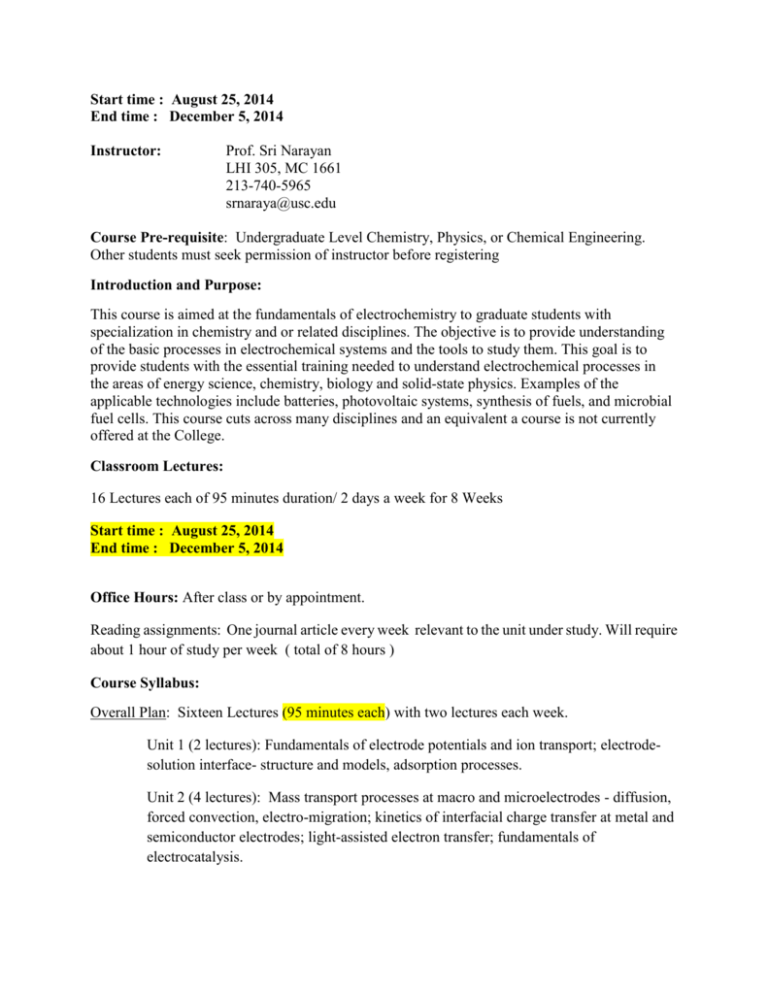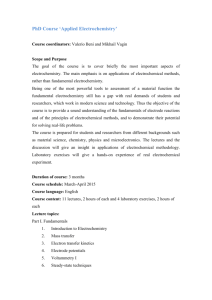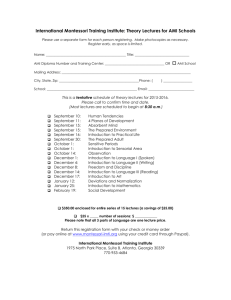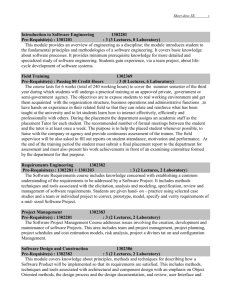Word
advertisement

Start time : August 25, 2014 End time : December 5, 2014 Instructor: Prof. Sri Narayan LHI 305, MC 1661 213-740-5965 srnaraya@usc.edu Course Pre-requisite: Undergraduate Level Chemistry, Physics, or Chemical Engineering. Other students must seek permission of instructor before registering Introduction and Purpose: This course is aimed at the fundamentals of electrochemistry to graduate students with specialization in chemistry and or related disciplines. The objective is to provide understanding of the basic processes in electrochemical systems and the tools to study them. This goal is to provide students with the essential training needed to understand electrochemical processes in the areas of energy science, chemistry, biology and solid-state physics. Examples of the applicable technologies include batteries, photovoltaic systems, synthesis of fuels, and microbial fuel cells. This course cuts across many disciplines and an equivalent a course is not currently offered at the College. Classroom Lectures: 16 Lectures each of 95 minutes duration/ 2 days a week for 8 Weeks Start time : August 25, 2014 End time : December 5, 2014 Office Hours: After class or by appointment. Reading assignments: One journal article every week relevant to the unit under study. Will require about 1 hour of study per week ( total of 8 hours ) Course Syllabus: Overall Plan: Sixteen Lectures (95 minutes each) with two lectures each week. Unit 1 (2 lectures): Fundamentals of electrode potentials and ion transport; electrodesolution interface- structure and models, adsorption processes. Unit 2 (4 lectures): Mass transport processes at macro and microelectrodes - diffusion, forced convection, electro-migration; kinetics of interfacial charge transfer at metal and semiconductor electrodes; light-assisted electron transfer; fundamentals of electrocatalysis. Unit 3 (3 lectures): Instrumentation for measurement and control of potentials and currents. Steady State Approaches to Investigation of Electrode Kinetics Galvanostatic and Potentiostatic polarization; Impedance Methods. Unit 4 (3 lectures): Application of steady methods to common electrochemical reactions and processes- Hydrogen evolution , oxygen reduction and oxygen evolution reaction. Unit 5 (2 lectures): Non-Steady State Methods for Investigation of Electrode Kinetics – Potential Step, Current Step, Potential Sweep and Cyclic Polarization,; applications of non-steady methods in electroanalysis and organic transformations. Unit 6 (2 lectures): Optical and X-Ray Spectroscopy for investigation of electrochemical reactions. Course Requirements and Grades: Pre-requisite : Undergraduate level courses in Basic Chemistry or Physics Grading: Grades will be assigned based on the best four homework problem sets to be given out during the course. The problem sets will be assigned periodically at the end of the 4th, 8th, 12th and 16th lecture and will be in a week of posting. Each problem set will account for 25% of the final grade. No mid-terms or final exams are planned. All assignments will carry equal points and will require approximately 3-4 hours of work. Recommended Books: (1) “Electrochemical Methods –Fundamentals and Applications”- Bard and Faulkner; “Modern Electrochemistry”- Bockris and Reddy. Lecture Materials will be provided for the benefit of the students.








